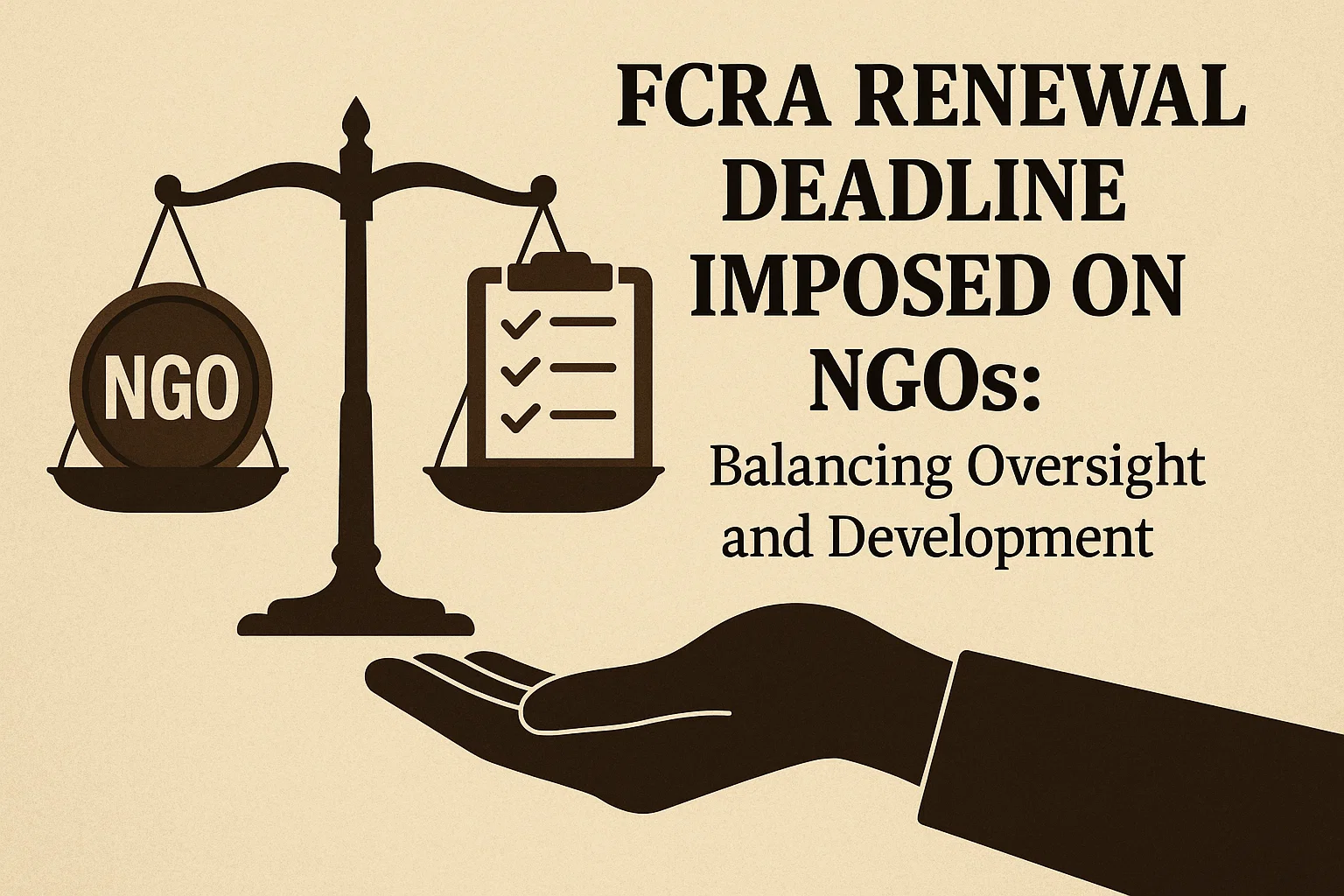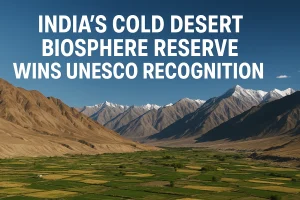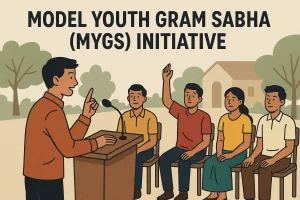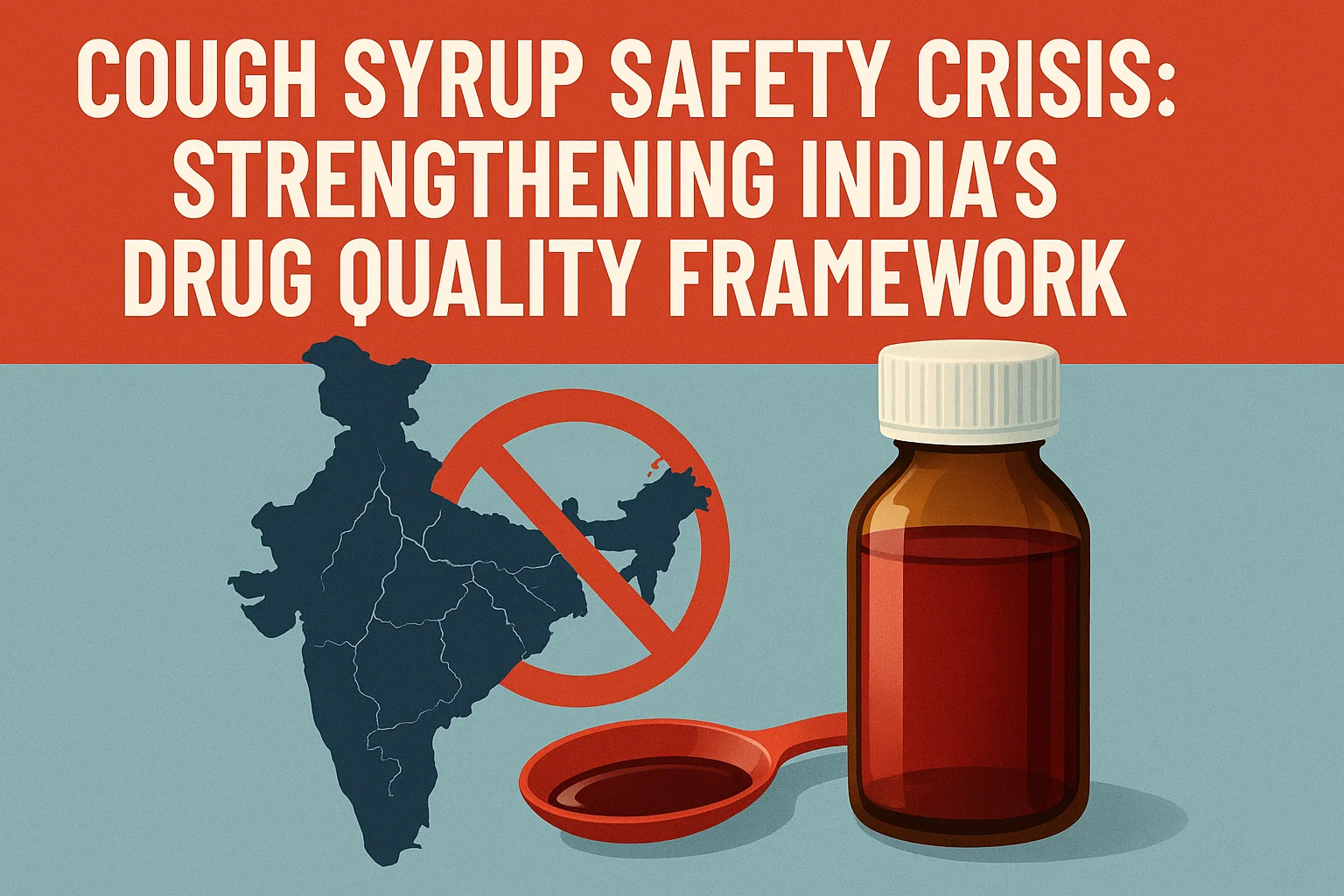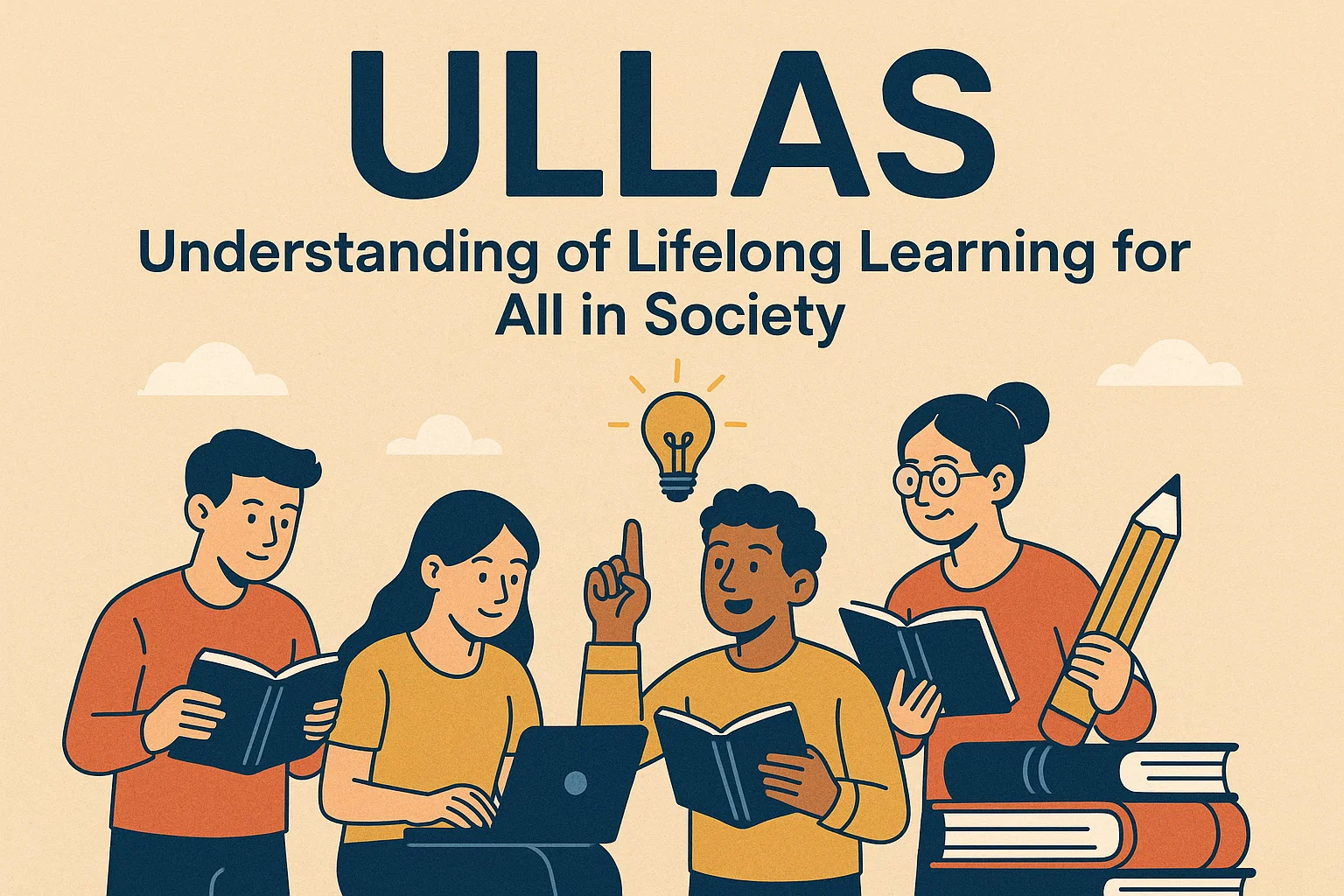FCRA Renewal Deadline Imposed on NGOs: Balancing Oversight and Development
The Home Ministry now requires NGOs to file FCRA renewal applications four months before expiry. While the Act ensures transparency and safeguards national interests, it creates compliance burdens and delays for smaller NGOs. Reforms, as suggested by the Vijay Kumar Committee, are vital to balance oversight with developmental needs.
Context
The Union Home Ministry has recently directed all Non-Governmental Organisations (NGOs) to submit their applications for FCRA (Foreign Contribution Regulation Act) renewal at least four months before the expiry date. The directive follows growing concerns over procedural delays that have often disrupted developmental activities dependent on foreign contributions. This decision once again brings into focus the delicate balance between national security and transparency on one side and operational freedom for NGOs on the other.
Key Objectives of the FCRA
The Foreign Contribution (Regulation) Act (FCRA), 2010 is a critical piece of legislation regulating the acceptance and utilisation of foreign funds by organisations and individuals. Its primary objectives are:
-
Regulate Foreign Contributions – To ensure that foreign funds received by individuals, associations, or companies are properly monitored.
-
Protect National Interest – To prohibit any funding that may be detrimental to sovereignty, integrity, security, or public interest.
-
Ensure Transparency and Accountability – By enforcing strict disclosure requirements for fund receipts and usage.
These objectives underscore India’s attempt to strike a balance between welcoming legitimate foreign aid and preventing misuse of funds for activities harmful to national security.
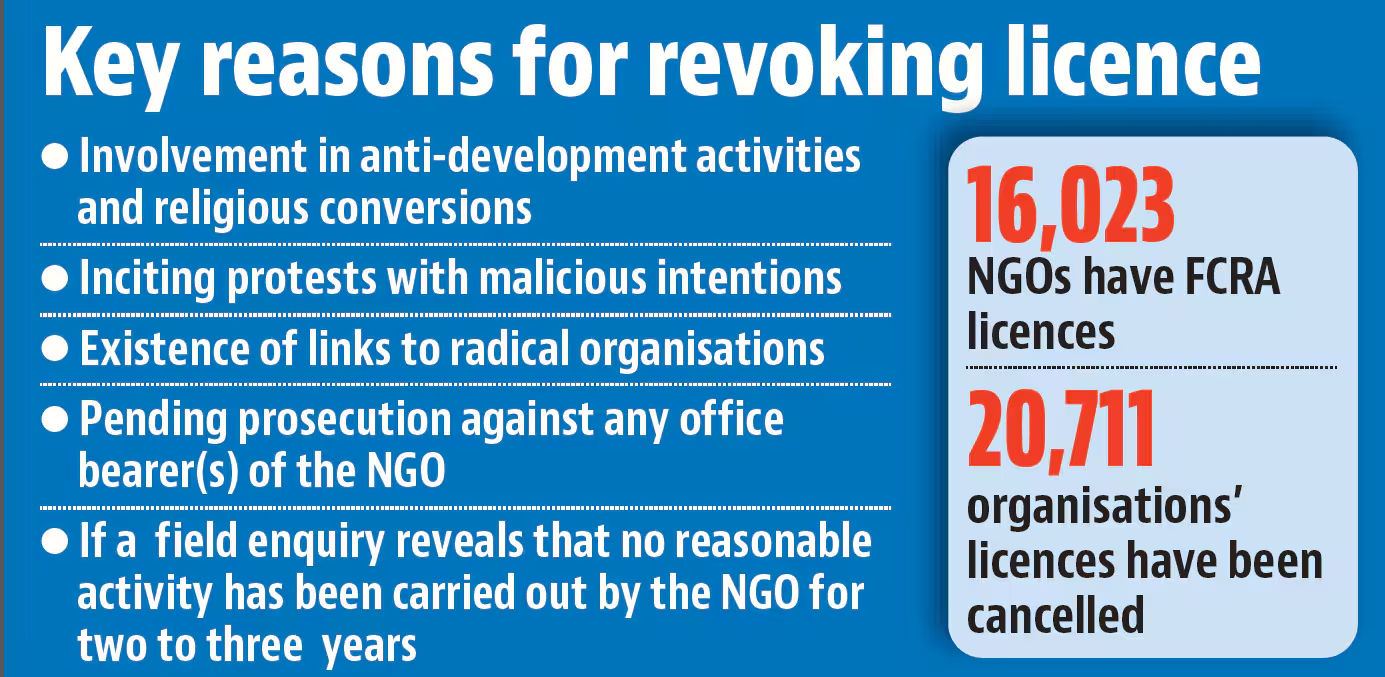
Provisions and Features of the FCRA
The FCRA incorporates several key features that make it a stringent compliance framework:
-
Mandatory Registration: Any entity seeking to receive foreign funds must register under FCRA.
-
Designated Bank Account: All foreign contributions must be deposited in a designated FCRA account at the State Bank of India, New Delhi branch.
-
Utilisation Restrictions: Funds must be used strictly for the declared purposes and cannot be diverted or transferred to other organisations.
-
Annual Returns: Registered NGOs must submit detailed annual reports specifying the amount, sources, and utilisation of foreign contributions.
-
Aadhaar Authentication: Office bearers of NGOs must provide their Aadhaar numbers for identity verification, enhancing accountability.
These features reflect the government’s intent to ensure strict monitoring and accountability of foreign contributions in India.
Challenges Created for NGOs and Developmental Activities
While the FCRA is important for safeguarding sovereignty, its implementation has posed significant challenges, particularly for small and grassroots organisations.
-
Compliance Burden
The new rule mandating applications four months before renewal adds to the already heavy documentation and administrative requirements for NGOs. -
Operational Delays
Obtaining prior permission and the lengthy processing time for registrations often delays the initiation and execution of developmental projects. -
Restricted Fund Usage
FCRA restrictions on fund transfers and utilisation make collaborative projects more difficult, limiting scalability and innovation. -
Increased Administrative Workload
Strict filing and reporting obligations divert organisational energy away from fieldwork and programme implementation. -
Impact on Smaller NGOs
Grassroots organisations, which often lack professional compliance teams, struggle the most. Many risk closure or downsizing, which directly impacts community-level interventions.
Thus, while the FCRA strengthens regulatory control, it inadvertently weakens the operational capacity of NGOs, especially those dependent on external funds for humanitarian or developmental work.
Need for Balancing Oversight with Development
The Vijay Kumar Committee (2017) provided an important roadmap for balancing transparency and operational efficiency. Its recommendations highlight how the government can create a regulatory ecosystem that secures national interests without paralysing NGOs.
Key Recommendations
-
Establish a Nodal Body
Create a single-window authority to oversee all NGO-government interactions, thus reducing bureaucratic hurdles and conflicting directives. -
Simplify Compliance
Streamline registration, renewal, and reporting processes through digitisation and clear guidelines to reduce the administrative burden. -
Capacity Building
Provide training and resources to NGOs to strengthen governance, financial management, and compliance capacity. -
Encourage Collaboration
Promote partnerships between NGOs, government agencies, and corporate CSR programmes to align efforts with national development priorities.
Implementing these reforms can ensure that NGOs are not overburdened while also making them more accountable.
Conclusion
The recent directive on FCRA renewal reflects the government’s continuing concerns about foreign funding and national security. However, it also highlights the need to ensure that regulations do not undermine the developmental role of NGOs.
NGOs play a critical role in India’s socio-economic fabric—bridging gaps in education, healthcare, environmental protection, women’s empowerment, and disaster relief. While transparency and accountability must remain central, regulatory overreach risks stifling their effectiveness.
A balanced approach, informed by the recommendations of the Vijay Kumar Committee, could help India achieve its twin goals of safeguarding sovereignty and supporting sustainable development.
Subscribe to our Youtube Channel for more Valuable Content – TheStudyias
Download the App to Subscribe to our Courses – Thestudyias
The Source’s Authority and Ownership of the Article is Claimed By THE STUDY IAS BY MANIKANT SINGH
